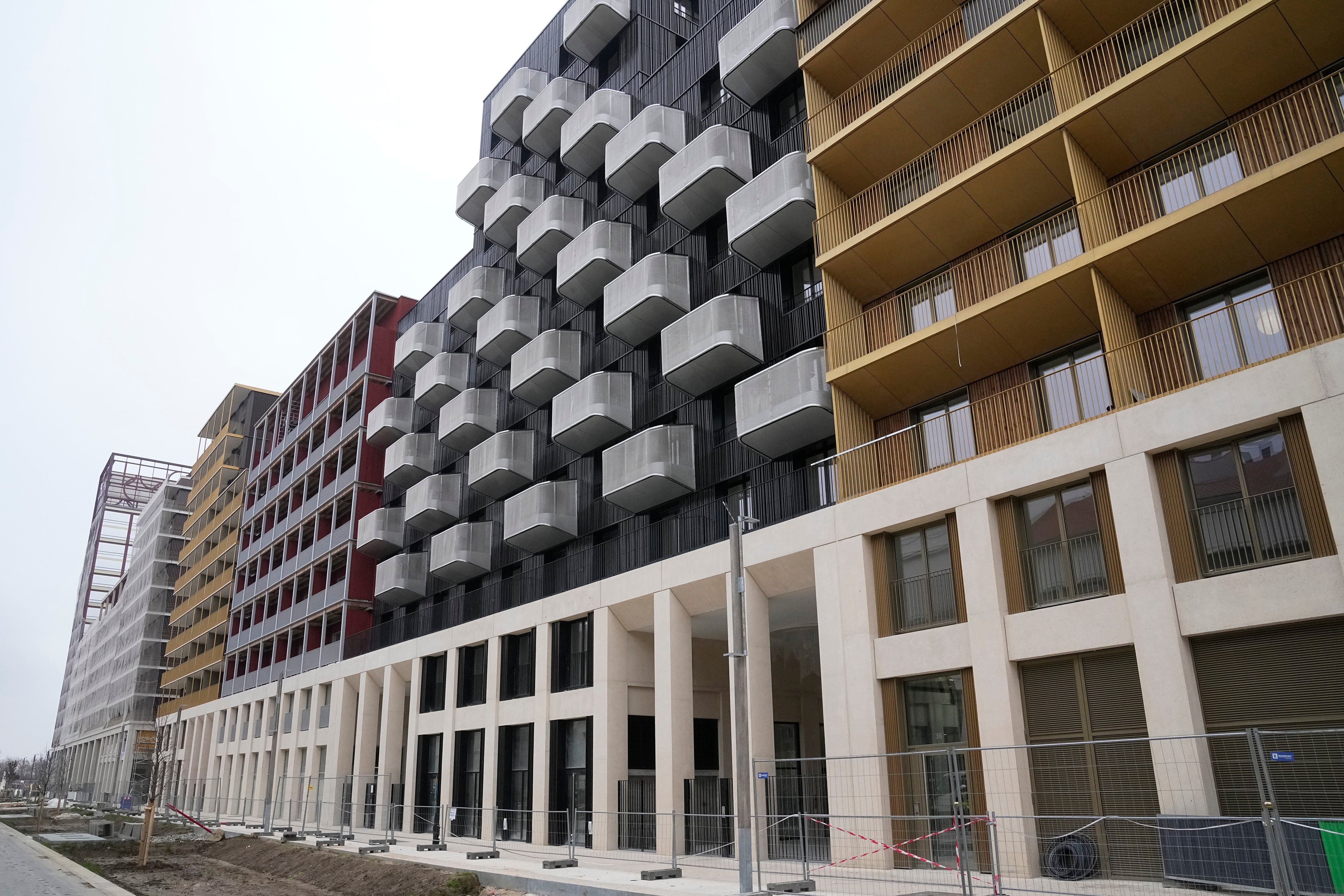The Sustainable Games: Can Paris 2024 organisers deliver on promise to host the greenest Olympics yet?
Olympics organisers may have fallen short of their goal to host the first climate-positive Olympics, but their efforts have not been in vain

Your support helps us to tell the story
From reproductive rights to climate change to Big Tech, The Independent is on the ground when the story is developing. Whether it's investigating the financials of Elon Musk's pro-Trump PAC or producing our latest documentary, 'The A Word', which shines a light on the American women fighting for reproductive rights, we know how important it is to parse out the facts from the messaging.
At such a critical moment in US history, we need reporters on the ground. Your donation allows us to keep sending journalists to speak to both sides of the story.
The Independent is trusted by Americans across the entire political spectrum. And unlike many other quality news outlets, we choose not to lock Americans out of our reporting and analysis with paywalls. We believe quality journalism should be available to everyone, paid for by those who can afford it.
Your support makes all the difference.With medals made of iron salvaged from Eiffel Tower refurbishments and stadium seating of recycled plastic, Paris 2024 aims to be the greenest Olympics yet.
The case for action is clear as scientists have said intense heat linked to man-made carbon emissions is a growing risk to competitors at the world’s largest sporting event and beyond.
Paris 2024 has pledged to reduce its carbon emissions by half compared to the average emitted during the London and Rio Summer Games.
Here are some of Paris 2024’s efforts towards meeting that goal.
Construction
For many people, Olympic stadiums such as Rio’s Olympic Aquatic Centre that have failed to find a purpose after the Games, symbolise extravagance.
Paris 2024 has sought to minimise new construction. Almost all venues use existing or temporary sites, often relying on the city’s landmarks as backdrops.
Organisers say the replacement of concrete with low-carbon building materials, including sustainably sourced wood, will reduce the Olympic Village’s emissions by 30 per cent compared to what the organisers referred to as ‘conventional projects,’ without giving further details.
Permanent infrastructure accounted for 73 per cent of the estimated 467,000 metric tons of carbon emissions generated by the Olympic Games between 2018 and 2023. In addition, 11,000 seats at the only two purpose-built arenas for Paris 2024 are made out of recycled plastic.
Transport
Along with construction, transport is expected to be one of the biggest sources of emissions during the Games. Organisers have said they will use low-carbon vehicles to ferry athletes and official visitors around, and that all venues are accessible by bike, foot or public transport.
However, Paris is not tackling the emissions generated by spectators travelling to the Games - such emissions made up almost a third (28 per cent) of the 3.3 million metric tons of carbon emitted by the London 2012 Games.
Renewable Power
Paris 2024 has said its venues will use renewable energy sources via the grid, rather than the diesel-powered generators often used at sporting venues.
Some 5,000 square metres of solar panels have been installed on the roof of the Aquatics Centre and Olympic Village, and a 400 square metre floating solar farm has been set up on the River Seine.

Meanwhile, the Olympic Village has a cooling system that draws water from underground rather than air conditioning.
State-owned utility company EDF told Reuters it would provide guarantees of origin to link the energy used by the Games to six wind and two solar production sites in France.
Carbon Offsets
To make up for some of the emissions that are not being avoided, notably spectator air travel, Paris 2024 has purchased 1.3 million carbon credits. Each credit represents one ton of emissions reduced or removed elsewhere, from projects protecting biodiversity-rich forests in Kenya and Guatemala and improving access to clean cooking in Kenya, Nigeria and the Democratic Republic of Congo.
Organisers are also spending 600,000 euros (£506,068.59) on four forestry projects in France to sequester 14,500 tons of greenhouse gases.
Although carbon credits can channel money to climate-friendly projects, often in the Global South, some credit-generating projects have been scrutinised over false claims about the benefits they deliver.
Paris 2024 had positioned itself as the first climate-positive Games in reference to plans to remove, reduce or offset more emissions than it generates. It has since dropped such claims, pledging instead to reduce its climate impact and support climate projects.



Join our commenting forum
Join thought-provoking conversations, follow other Independent readers and see their replies
Comments